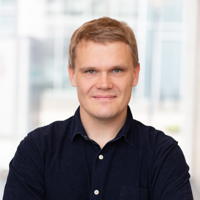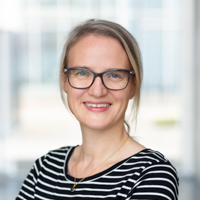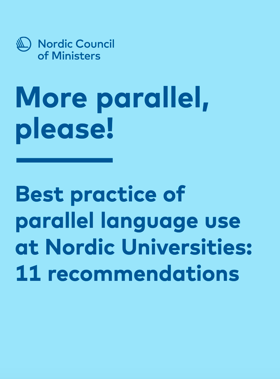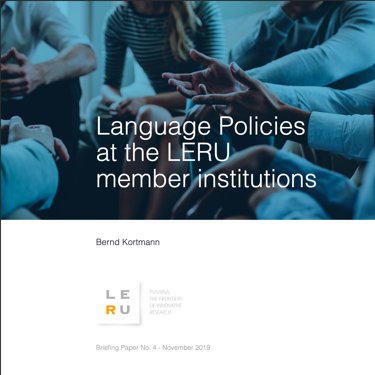Language policy and planning
Research in the area of language policy and planning at CIP mainly revolves around language choice in educational settings, in research, in administrative contexts and other areas of university life. What languages are used when, by whom, for what purposes, and with what consequences for the people and the activities involved?
Research areas
Our research within language policy and planning focuses on the development, implementation and consequences of specific language policies, the way different languages are used as part of social practices and the beliefs and attitudes individuals hold towards different languages.
One central strand of research explores implicit and explicit language policies and their importance for social inclusion and exclusion for students as well as staff.
Another strand concerns the language political landscape in Denmark more generally. Here we explore how discussions of language policy at Danish universities relates to questions about the role of universities in contemporary Danish society.
Researchers at CIP also explore questions related to language policy in multinational companies and other contexts characterized by internationalisation.
CIP has hosted several researchers working on projects related to language policy and planning, including two PhD projects.
One project, "More Danish, More English: Language Policy, Language Use, and Medium of Instruction at a Danish University", by Kimberly Chopin, examined the implementation of a new language policy at a Danish university facult and found a mismatch between top-down policies and bottom-up practices.
Another project, conducted by Camilla Falk Rønne Nissen, used linguistic ethnography to explore the lived experiences of students in three versions of the international classroom at different faculties at the University of Copenhagen. The project uncovered a number of “blind spots” of university internationalization, including the challenges involved – for students as well as examiners – in running oral exams when students have limited experience with this exam form.
Camilla’s project was formally funded and hosted by the Department of Nordic Studies and Linguistics and illustrates the close collaboration that exists between CIP and our neighboring departments.
You can read about these and other projects in the list of “previous research activities”.
Research methods
Much of the research within this area is based on linguistic ethnographic case studies, which involves participant observation, audio and video recording of day-to-day practices, and interviews with participants. This approach allows us to get a comprehensive understanding of the particular educational programme, research group etc. under study.
Depending on the research questions asked, we also rely on survey-based methods and discourse analysis of language policy related documents.
We invite collaboration with all units at the university of Copenhagen – from faculties, to individual research groups and administrative units – on questions related to language policy and language choice.
We have extensive experience in collaborating with internal as well as external partners, and we collaborate routinely with researchers in the Nordic countries and beyond through networks and research projects.
CIP has also been involved in the preparation of reports and recommendations on university language policy in the Nordic countries and Europe, including recent reports published by the Nordic Group for Parallel Language (under the auspices of the Nordic Council of Ministers) and the LERU alliance, The League of European Research Universities.
The report prepared by The Nordic Group for Parallel Language, "More parallel, please!" [English] [Dansk], is a particularly useful resource for universities seeking to develop new language policies or improve current ones. The LERU report by Bernd Kortmann (University of Freiburg) offers a thorough account of the language policy situation at LERU member institutions across Europe, including the University of Copenhagen.
Chopin, Kimberly. 2016. More Danish, More English: Language Policy, Language Use, and Medium of Instruction at a Danish University. PhD dissertation. The Faculty of Humanities: University of Copenhagen. https://static-curis.ku.dk/portal/files/170476653/Ph.d._afhandling_2016_Chopin.pdf
Holmen, Anne. 2019. Language Policy and Multilingual Practices at University of Copenhagen. In Institutionelle Sprachenpolitik an Hochschulen – Fortschritte und Herausforderungen (Beiträge zur Hochschulpolitik, 1/2019), edited by Iris Danowski & Jennnifer Gronau, 55–62. Berlin: Hochschulrektorenkonferenz. https://www.hrk.de/fileadmin/redaktion/hrk/Sprachenpolitik_Publikation_Web.pdf
Mortensen, Janus. 2018. Language regulation in collaborative student writing: A case study. Language and Education, 32:6, 529-547. https://doi.org/10.1080/09500782.2018.1513028
Mortensen, Janus, and Hartmut Haberland. 2012. English — the New Latin of Academia? Danish Universities as a Case. International Journal of the Sociology of Language, 216: 175–97. https://doi.org/10.1515/ijsl-2012-0045.
Nissen, Camilla Falk Rønne. 2019. Blind spots of internationalization of Higher Education Lived experiences of students in three versions of the international classroom. PhD thesis, Department of Nordic Studies and Linguistics: University of Copenhagen. https://static-curis.ku.dk/portal/files/222323139/Ph.d._afhandling_2019_Nissen.pdf




